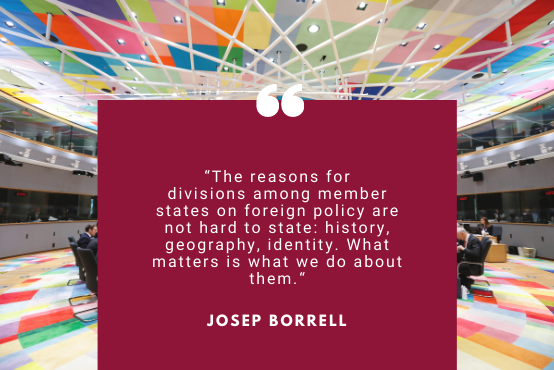Regions and cities gain prominence on the EU's R&I agenda

Members of the European Committee of the Regions have welcomed the European Commission’s increased focus on regional and local innovation ecosystems. On 30 September, the Commission published a communication on a new European Research Area for Research and Innovation. It promises strategic and coordinated support to regions and cities, building on successful initiatives such as the Knowledge Exchange Platform and Science meets Regions, which will be upgraded to a strategic level.
The CoR’s Commission for Social Policy, Employment, Culture, Education and Research (SEDEC) hosted on 1 October a debate with Jean-Eric Paquet, European Commission’s Director-General for Research and Innovation (DG RTD). Mr Paquet highlighted the good experiences from the Knowledge Exchange Platform, a concept jointly developed by the CoR and DG RTD to present new R&I solutions, innovative products and best practices in response to societal challenges facing the regions and cities of Europe.
SEDEC Chair Anne Karjalainen (FI/PES) said: “We warmly welcome the European Commission’s intention to further enhance the strategic cooperation with the European Committee of the Regions through the Knowledge Exchange Platform. Local and regional authorities are the linchpin in the process of deepening at the same time the European Research Area and the European Educational Area, which is crucial for bringing Europe up to speed with the green and digital transitions underway.”
Christophe Clergeau (FR/PES), Member of the Pays-de-la-Loire regional council, will lead the CoR’s work on the European Research Area communication. The draft opinion will be adopted at the next SEDEC meeting on 25 November. The newly-appointed rapporteur stressed that “there is still need to improve local and regional authorities’ role in the governance of research programmes and increase synergies between R&I and cohesion policy. The European Research Area should allow for a wider approach where all stakeholders work together and should develop in synergy with the European Education Area.”
During the exchange of views with Director-General Paquet, various members also expressed concerns on the innovation gap between EU regions, which the brain drain phenomenon risks to exacerbate. SEDEC vice-chair Matteo Bianchi (IT/ECR) suggested providing support and fiscal incentives to companies that invest in innovation in less developed regions.
Director-General Paquet concluded that “Europe needs to team up across policy areas and work with citizens to make R&I not only the best science in the world with ground-breaking innovations, but also a policy framework which provides knowledge and solutions Europe needs on digital and green transitions and artificial intelligence”.
The European Commission’s Joint Research Centre published this week the end of term report for the Science meets Parliaments/Regions pilot project, concluding that there is need to further improve evidence-informed policymaking in all levels of government.
The CoR will adopt in its plenary session on 12-14 October an opinion on the European Commission’s Regional Innovation Scoreboard (rapporteur Mikel Irujo, ES/EA), the next edition of which will be published in 2021. The CoR will also publish the first Annual Regional and Local Barometer, which focuses on the effects of COVID-19 in EU regions.
More information:
During the meeting on 1 October, SEDEC members had a preliminary discussion on following two draft opinions that will be adopted at the next SEDEC meeting on 25 November:
Following new rapporteurs were appointed:
- Yoomi Renström (SE/PES), Member of Ovanåker Municipal Council, for the opinion A Union of equality: EU anti-racism action plan 2020-2025
- Gillian Coughlan (IE/Renew E.), Member of Cork County Council, for Digital Education Action Plan 2021-2027. Resetting education and training for the digital age
- Emil Boc (RO/EPP), Mayor of Cluj-Napoca, for Achieving the European Education Area by 2025
- Christophe Clergeau (FR/PES), Member of the Pays-de-la-Loire Regional Council, for A new ERA for Research and Innovation.


